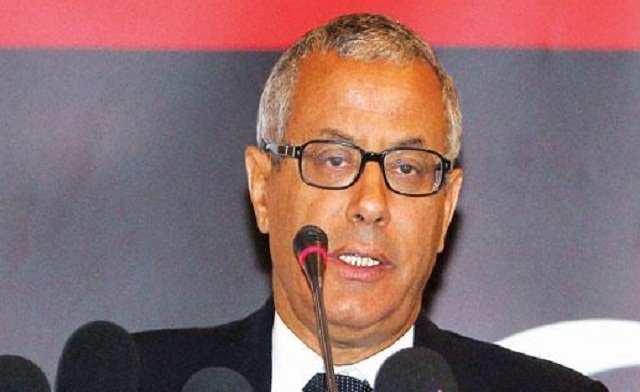
(DNE Photo)
By Mohamed Ayyad and Mohamed Mostafa
The government is to sign contracts with five or six consultancy offices to review economic summit projects, according to Investment Minister Ashraf Salman.
The consultancy offices are part of what is called the Big 5 referring to international accountancy firms, and include Ernst and Young and PricewaterhouseCoopers (PwC). The offices will review the projects so that they may be presented “in a completely professional manner”.
Salman said on Monday that the government will not be conducting any feasibility studies for the projects and will let investment banks and consultancy offices do the job to avoid previous mistakes and ensure new investment. The consultancy offices and investment banks, with which the government entered into recent contracts, will work on the technicalities of these projects, during meetings that will be held soon in the presence of the main technical organiser, Lazard.
Salman added that the ministry assigned 23 projects to 14 investment banks, and these projects are being prepared and sorted before those to be presented at the summit are chosen. There are another 20 water desalination and sewage factory projects, and road projects under buy-operate-transfer (BOT) and public private partnership (PPP) systems, which are consistent with the World Bank and International Finance Corporation standards.
In addition, there are 17 other projects in the public business sector, which will be set by the investment banks in cooperation with consultancy offices. According to Salman, preparing and launching these projects will only be done in conformance with international standards, even if only a very small number are launched.
“We made a mistake by raising our expectations for the economic conferences, because these conferences pave the way to investments, while the target of the economic summit, set to be held in March, is to grab the attention of long-term investors like international funding organisations and the major international corporations and funds, while also targeting a presence on the international investment map,” the minister said.
Salman also highlighted that investment banks offered to work for free to prepare and market the projects with an investment motive. They will be the first to benefit from these projects if economic activity in Egypt picks up once again, although the agreement states banks will receive a commission only if successful.
Meanwhile, talks on speeding up the Suez Canal Axis project are still in progress. There are discussions on whether to transform the area into an economic zone or establish a specialised agency with separate legislation in order to avoid bureaucracy. Dar Al-Handasah Consultants will provide the general scheme for the zone in February so that it may be presented at the summit.
Salman said the recent settlement with Majid Al-Futtaim Group will open the way for investments worth EGP17bn from the group over the coming three years, and emphasised the government’s seriousness in settling disputes.
He said that the dispute with Egypt Kuwait Holding Company over the Ayat land plot is still ongoing. The government promised the investor that it would connect water to the area for cultivation, but this move was rejected by the Kuwaiti investors, demonstrating that the government is serious while the investor procrastinates. He also pointed out that the investor received the land at an agricultural price per meter and later converted the area to suit commercial use.
“The dispute is not due to the weakness of the government and the evidence is that the investor refused to cultivate the land,” Salman added.
The value of the land will be re-evaluated with initial estimates ranging between EGP40-43bn.
He explained that he was keen to safeguard serious investors regardless of nationality, and was focused on serious investments with a main component of providing employment and improving the living standards of Egyptians.
Salman revealed that the dispute with Abdullah Kaaki over the Nubaseed land plot will be resolved within days at which point the government will grant the company full documents as well as the land. This will prevent international arbitration, he said. However, Salman explained that the Tanta Flax & Oil Co. crisis is ongoing and its resolution will require time.
The minister further said that government companies will compete for the iron and cement licences which will be launched soon to fill a potential gap between production and consumption of iron and cement by 2012 with the private sector. He expects that the coming phase will witness a breakthrough in providing energy for licence holders by either allowing gas imports or foreign oil companies raising production in Egypt after receiving payment for overdue debts.
Salman revealed that his ministry received investment requests in the energy sector from several investors to generate 14 GW despite the government launching 4 GW of energy at present, with decisions to be made within days. This provides evidence that the energy sector is attractive to investors.
“The recent European tour by President Al-Sisi washed away disputes with American companies who are currently conducting consultations with us in order to gain insight on investment opportunities available in various sectors,” he concluded.


